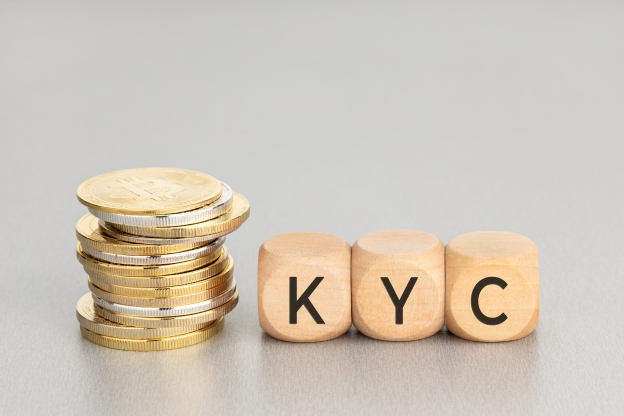Understanding the Know Your Customer (KYC) Rules in Crypto Exchanges
3 comments
Though crypto is decentralized and there is no place for KYC but we still hear KYC word on a regular basis in the crypto world. KYC means know your customer. This is an unnecessary subject, right? Because crypto is all about decentralization and anonymity, we have to admit that centralized exchanges are still dominating. And we are using them.

What is KYC?
If you want to verify your identity on crypto centralized exchanges, then you have to follow the KYC process, and this way they ask for your personal information, such as Date of birth, residential address, your full name with surname, and verification ID like a passport or license. Apart from that, they can also ask for a live selfie or short video verification.
Is KYC Important?
It is important for CEXs and the government because they want to stop illegal activity, and countries' governments, regulatory authorities impose the rules on crypto exchanges to stop crimes like terror funding, money laundering, or any type of scam. With KYC, they can know who is behind the transaction, and this way, it is easy to track and catch. KYC also protects the users so that a scammer can't create a duplicate account to scam someone, so they think this is safer for the crypto users. But everyone thinks differently.
Let's understand how KYC works on CEXs
When you sign up for the centralized exchanges like Binance, Coinbase, or Huobi, you have to follow the KYC rules to apply for it otherwise, the full features will not be available for you, and you can't even withdraw your crypto without KYC.
- Sign up on the centralized exchanges using your email, phone number, and password.
- Then, usually, you have to go to the verification section, where you can find the KYC
- Here, you have to give your details with proof of identity and address verification, and it can ask for a selfie and live video verification
- Then the exchange's team checks and verifies it
Wait for the exchange to review and approve your documents.
KYC is required in almost 98% of exchanges; otherwise, they will not let you withdraw. Some exchanges allow trading and depositing small amounts, but not withdrawing.

Is there a difference in KYC rules in these exchanges?
If the exchange belongs to a country where regulation is strict, the KYC rule is gonna be strict too, for example United States, Europe, and others. On such exchanges, you can't even open the account without KYC. No-KYC or minimal-KYC exchanges are protecting your privacy, but they are at higher risk, and these exchanges belong to regions where the crypto rules are not as strict. There is the best option for you that gives you better security, and at the same time, you don't need to do any KYC, and that is a Decentralized exchange (DEX).
KYC is not good for crypto's core aim
There has been debate on the KYC topic for years, and there are two groups. One group wants KYC, the other group thinks that it is killing the decentralization, privacy, the main aim of crypto, and freedom. From which group do you belong? Answer me in the comment section, and do you think KYC is necessary or not? You have to share this thing as well. Right now I am ending this discussion here and wanna meet you tomorrow. Follow me on Hive. Share this article on Web 2 and also focus on engaging more on Hive. Have a good day ahead and take care, my dear hivers.

"Your time is limited, so don't waste it living someone else's life. Don't be trapped by dogma — which is living with the results of other people's thinking." -Steve Jobs
MESSAGE ME ON telegram(@faiz19711)
Posted Using INLEO

Comments